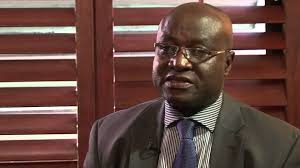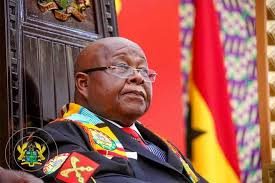
Majority Leader, Osei Kyei Mensah-Bonsu, has suggested that future Speakers of Parliament who may have to act as President be allowed to take only the Oath of Secrecy.
At the moment, Speakers of Parliament who serve as acting President in the absence of both the President and the Vice, are to take only the Oath of Office.
But speaking on the floor of Parliament on Sunday after Professor Michael Oquaye was sworn in as acting President, Mr. Mensah-Bonsu said the country could take a second look at the arrangement.

He argued further that the Speaker of Parliament is already administered the Oath of Allegiance when sworn in as Speaker of Parliament.
“The Speaker did not take Oath of Secrecy. For the Oath of Allegiance, the Speaker has already taken it, so I would want to plead that going forward, whenever he has to be sworn in, he does not need to take the Oath of Allegiance because he has already done so as a Speaker. What he didn’t do was the Oath of Secrecy that is done by the President.”
“So I would think that, going forward, when the Speaker has to be sworn in as a President, the Oath of Secrecy would have to be admitted. It has never been done, but I guess we can improve our own procedures,” the Majority Leader stated.

The Oath of Secrecy
The Oath of Secrecy is taken to ensure that one does not reveal State secrets.
The Oath of Secrecy says: “I,………………………………………………………………………………………………holding the office of…………………………………………..do (in the name of the Almighty God swear) (solemnly affirm) that I will not directly or indirectly communicate or reveal to any person any matter which shall be brought under my consideration or shall come to my knowledge in the discharge of my official duties except as may be required for the discharge of my official duties or as may be specially permitted by law. (So help me God)”
It is to be sworn before the President, the Chief Justice or such other person as the President may designate.
Controversy over swearing-in
The law concerning the swearing-in was breached by a former Speaker of Parliament, Doe Adjaho in 2014, when he refused to take the oath of office as acting President at a point.
Both President Mahama and his Vice Kwesi Amissah-Arthur, had traveled outside the country at the time.
This compelled the Managing Director of Citi FM, Samuel Atta-Mensah, and a United States-based Ghanaian lawyer, Prof. Kwaku Asare, to file a suit at the Supreme Court, to among other things, seek an interpretation of Article 60 (12) of the 1992 Constitution, which requires that the Speaker takes the oath of office each time he is to act as President.
The Supreme Court, in a unanimous decision, declared that the Speaker of Parliament, Mr. Edward Doe Adjaho, violated Article 60 (11)-(12) of the 1992 Constitution when he declined to be sworn in to act as President.
The nine-member panel, presided over by Justice Sophia Akuffo, also averred that the “Speaker of Parliament shall always, before assuming the functions of the Office of President when the President and the Vice-President are unable to perform their functions, take and subscribe to the oath set out in relation to the Office of President”.
Some have however insisted that the law is obsolete, considering that a President on an international assignment remains a President, and so he or she doesn’t need anyone to act in his absence.
source: citifmonline
